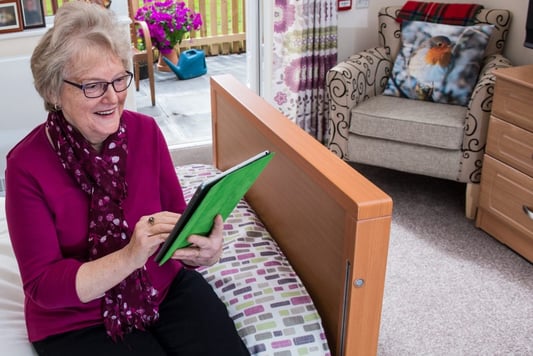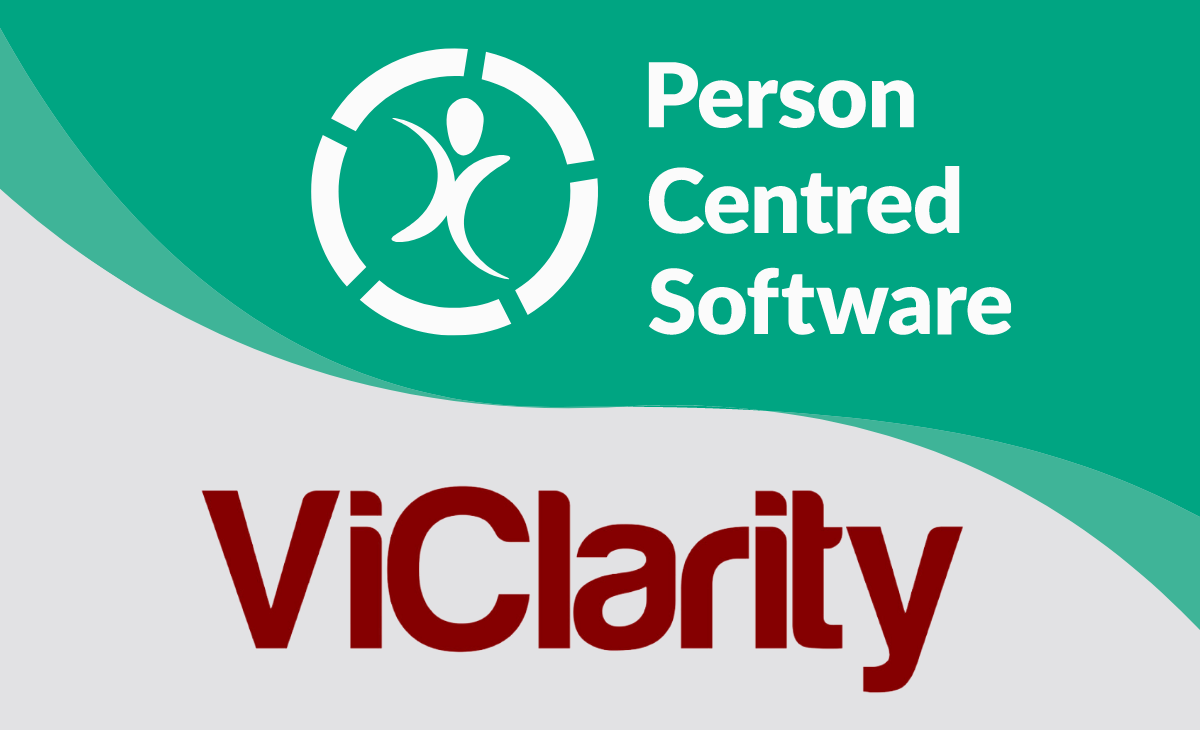
Published in Care Home Professional
A Warwickshire care home group with 13 homes believes the use of innovative software is an effective way to help improve the management of residents’ hydration and reduce the risk of falls by providing real-time data for frontline care staff from shift-to-shift.
In 2016, WCS Care started rolling out the use of Mobile Care Monitoring, a digital care planning and monitoring software from Person Centred Software, which provides care homes with an easy and effective way of monitoring fluid intake. Within a year of implementing the technology, which replaced paper recording, the charity recognised there was a correlation between residents drinking at least 1.5 litres of fluids a day and a 33% reduction overall in the number of falls.
Ed Russell, Chief Executive of WCS Care, said: “Using Mobile Care Monitoring to document residents’ intake of fluid in real-time, care homes can immediately see which residents have not had sufficient fluids and can take appropriate action. The fluid offered to residents, and the amount of fluid drunk in millilitres, is simply evidenced at the point of delivery on mobile clinical devices.
“Reminders to offer drinks can be set up as part of a planned care routine, with a traffic light system of flags alerting staff to when a care task is due or to a resident falling below the recommended fluid threshold for the rolling 24-hour period.”
As well as helping to improve resident hydration levels, Mobile Care Monitoring gives care providers the ability to analyse any incidents, to trace what actions led up to them and prevent future incidents occurring.
Jonathan Papworth, co-founder of Person Centred Software, explained: “In our falls matrix we measure the location, where it happened, how many staff were on shift, etc. Using this data, one care home realised that the times when their residents were more likely to have falls were during their shift handover when less staff were on the floor. They were able to change their staff working patterns so that they were able to support the residents better.”
“It's fantastic to see such a positive result from the implementation of our software. A quarter of all care home residents admitted to hospital are dehydrated, have UTIs and have suffered falls – many of which are avoidable through good hydration. With falls and fractures in particular an expensive health issue estimated by the National Institute for Health and Care Excellence to cost the NHS more than £2.3 billion per year, and the human cost of falling including pain, distress and loss of confidence, the value in fall prevention and intervention technologies for care homes cannot be denied. It’s wonderful to see our software making such a difference in this area,” Jonathan concluded.







.webp?width=80&height=80&name=HTD%20Awards%202023%20Badge%20(4).webp)














